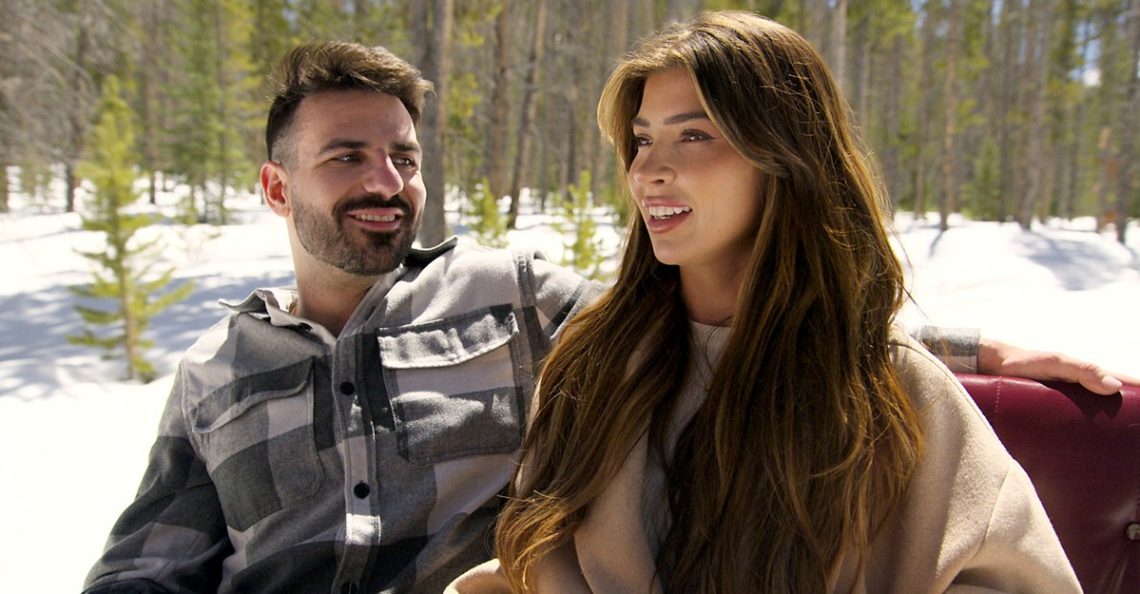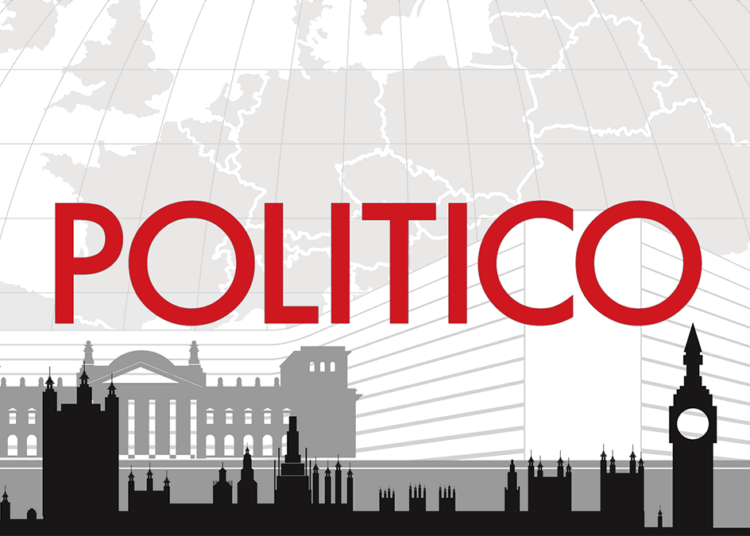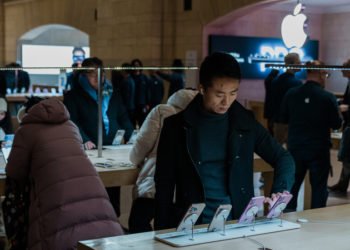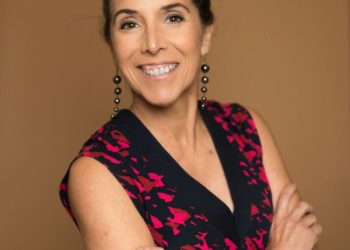This article contains spoilers for Season 9 of Love Is Blind.
For a reality dating show with an experimental premise, Love Is Blind has always been pretty traditionalist. Its entire purpose is the pursuit of heterosexual marriage. Separated by gender, contestants date one-on-one in “pods” without seeing each other. When it comes time for engagement, the men do all the proposing, and from then on the show is an arrow hurtling toward the altar.
But this season, which ended last week and aired its reunion episode last night, featured many contestants who seemed to be seeking relationships that were notably old-fashioned. Some people expressed sentiments that wouldn’t feel out of place on tradwife TikTok. This conservative bent mirrors a wider cultural shift, as more Americans express support for traditional gender roles. It also heightened Love Is Blind’s ongoing tensions between conventionality and nonconformity, and left the season’s values feeling incoherent—up until the end, when the show’s premise collapsed entirely.
The show’s focus on conversation means contestants’ values are often at the forefront of the dating process. So viewers found out early on that Anton is “very old-school traditional in terms of how I treat women,” and that a woman called “Sparkle Megan” believes in “more traditional gender roles.” Despite Megan’s obvious wealth and ambitious career, she said she thinks women should be nurturers and men should be providers. One of her dates, Mike, visibly perked up at this and said, “I support that.”
Not all contestants professed ideas like these. Kalybriah and Edmond, for instance, stated from the jump that they were both looking for what they called a “nontraditional” marriage; Kalybriah said, “I’m not going to be a housewife. I’m going to be working.” Still, a conservative streak persisted through many of the season’s relationships. When one couple, Annie and Nick, got engaged, she told him, “Thank you for taking the lead, and thank you for making me feel safe and secure enough to follow.” When Anton’s mother eventually met his fiancée, Ali, she advised the couple that “traditional values are always, I think, the best to stick with,” and they both agreed. Ali told Anton’s mom, “I don’t think there’s any reason to bring children into the world and pawn them off to a day care.”
These ideas went largely without pushback, whereas in past seasons, questions of core values and political beliefs frequently led to debate and friction between partners. In Season 8, for instance, two women said no at the altar because of differences in political views with their partners. Previous seasons have showcased arguments about abortion, birth control, and splitting the bill versus expecting the man to pay for everything.
Nick and Annie found that they were aligned on some especially regressive beliefs. Of spanking children, Nick said, “Sometimes they need to be reprimanded,” to which Annie responded, “Hell yeah.” Then Nick asked Annie how she would feel if her child were to say they were LGBTQ. “No matter what, I’m always going to love my kids,” she said. “But I can’t tell you I would be the first person to be like, Yay.” “Do you feel like it’s a fad?” Nick asked. “One hundred percent,” she replied. When the episode aired, the comments about gay kids received a lot of backlash, and Nick has since issued a statement “taking accountability,” though he also claimed that the conversation had been “very heavily sliced and diced.” The co-hosts, Vanessa and Nick Lachey, did not bring any of this up in the reunion episode. They did push back on inaccurate comments that one contestant had made about diabetes, but any talk of the season’s most controversial conversation was conspicuously absent.
The conservatism in this season seemed in tune with changes in society at large. Among Republicans in particular, the view that women should “return to their traditional roles” has spiked in the past few years. In a recent survey of Americans by The 19th, nearly six in 10 men said that “society would benefit from a return to traditional gender roles”; four in 10 women said the same. Narrow visions of gender roles and family life also emanate from the Trump administration, which has pursued a definition of gender as binary and fixed, and eroded the rights of trans people through executive orders. Project 2025, a blueprint for the Trump administration written by the Heritage Foundation, has made the promotion of heterosexual nuclear families an essential part of its agenda.
Yet for people seeking a “traditional” marriage, Love Is Blind is an odd place to try to find it. Seeking a life partner on television is hardly old-fashioned, to say nothing of blind dating through a wall. Moreover, the show seems confused about just how sacred it thinks marriage is. It glorifies the institution with one hand while degrading it with the other. The show repeatedly suggests that it produces a purer kind of relationship, one unencumbered by the biases of “the conventional dating world,” as Nick Lachey puts it—yet it mines real-world friction for maximum drama. Once contestants are engaged, they have just four weeks to prepare to be married. And the show plays up the mystery of whether they will say yes at the altar, essentially retconning the commitment of the proposal into something meaningless. Traditionally, one doesn’t spend one’s engagement unsure of whether one is actually planning to marry the other person. Love Is Blind frames marriage as the American dream, a transformative portal that will bring you to your best and most complete self. Then it turns wedding vows into a farce of indecision. And of course, as on any reality program, the contestants have muddled motives (seeking a lifetime partnership, pursuing fame), and so does the show (helping people find love, producing a profit).
The contestants’ values also seemed conflicted at times. Ali introduced herself in the first episode by saying she’s single because she hasn’t found someone to match her ambition, then spent much of the remaining episodes focused on Anton’s ability to support her financially, before leaving him at the altar. (At the reunion, she said she wanted to pursue her career, but also reiterated her desire for a man to provide.) Megan got engaged to Jordan, a single dad to a boy named Luca, and expressed enthusiasm about the idea of a family life with them. (“If I can’t have kids, then what’s my purpose?” she wondered at one point. “I guess stepping into being Luca’s mom.”) But she broke up with Jordan before their wedding, seemingly because he has to work and parent too much to join her in her wealthy, independent lifestyle of frequent travel and weekday tennis. “In the pods, I was really leaning into him being a single father, the excitement of it, but I don’t think I thought through how challenging it is, and how I would need to make a lot of concessions to how I currently live,” Megan told the cameras after their breakup. “This has me questioning if I’m even cut out to be a mom. Maybe I am too caught up in my own life.” By the time of the reunion, she had resolved this for herself—she shared in last night’s episode that she’d recently had a baby with a new partner. The contestants’ ambivalence is surely relatable to the many people who feel uncertain about how to balance clashing desires. But the season seemed to have trouble knowing what to make of these tensions.
And as it turns out, the center could not hold with all of these competing ideals pulling on one another. For the first time in the history of Love Is Blind—both the original American franchise and its many international spin-offs—every contestant ended up alone. In the finale, everyone who had made it to the altar left the wedding venue solo, to the tune of Miley Cyrus’s “Flowers.” The song is Cyrus’s ode to independence, with lines such as “I can love me better than you can.” This last-minute pivot to self-love was jarring, yes. But you know what—why not? It made about as much sense as anything on the show ever has.
The post Traditional Values Came for TV’s Weirdest Dating Show appeared first on The Atlantic.




